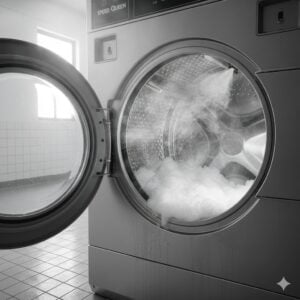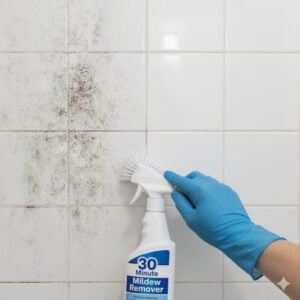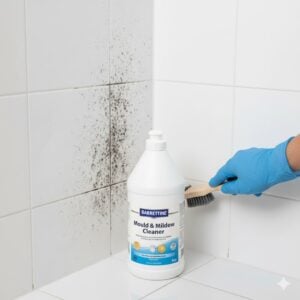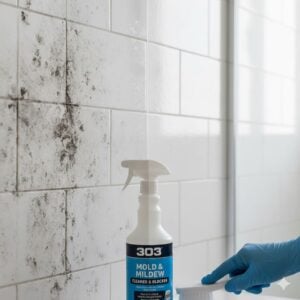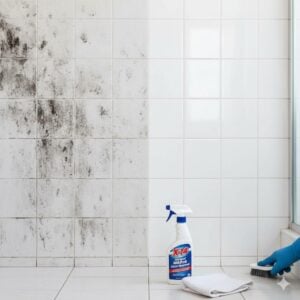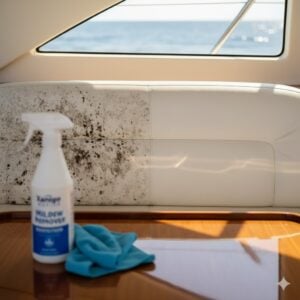In recent years, the idea of a smart home home automation has shifted from being a futuristic concept to a practical lifestyle choice in the UAE. With Dubai’s fast-paced urban life and the rising demand for comfort, safety, and efficiency, many homeowners now view smart home technology as a necessity rather than a luxury. But beyond convenience, one of the biggest benefits of home automation is its ability to create a cleaner, healthier, and more energy-efficient living environment. In this article, we’ll explore how smart home home automation contributes to cleaner living — from air quality improvements and reduced energy waste to intelligent cleaning systems that make daily maintenance effortless.
Table of Contents
ToggleWhat Is Smart Home Home Automation?
Smart home home automation refers to using technology to control and automate household systems through a centralized platform. This includes lighting, air conditioning, security, cleaning devices, and even water management. The system can be controlled through a smartphone, tablet, or voice assistant, allowing homeowners to manage their homes from anywhere. By integrating sensors, artificial intelligence, and data analysis, automation turns ordinary homes into responsive environments that adapt to your lifestyle and keep your surroundings clean and efficient.
Cleaner Living Through Automation
Many people associate smart homes with comfort or luxury, but one of their most underrated advantages is cleanliness. Automated systems reduce dust buildup, control humidity, monitor air quality, and ensure that every part of your living space remains hygienic. Let’s explore the ways smart home home automation contributes to a cleaner lifestyle.
1. Automated Air Quality Control
In a city like Dubai, where dust and pollution can enter easily through windows or ventilation, maintaining good indoor air quality is essential. Smart air purifiers and HVAC systems automatically detect airborne particles and adjust filtration levels to keep the air clean. These devices can be linked to mobile apps that provide real-time air quality updates, allowing you to see pollutant levels and take action when necessary. Some systems even integrate with smart windows that close automatically during sandstorms or high-pollution alerts, keeping contaminants out before they enter your home.
2. Smart Cleaning Devices
Robotic vacuum cleaners, mop bots, and window-cleaning robots are examples of automation that reduce manual cleaning tasks. They can be scheduled to operate when you’re not home, ensuring your floors stay spotless every day. Modern robotic vacuums use laser sensors to map rooms, detect obstacles, and clean efficiently. Some even return to their charging dock automatically after finishing or when their battery runs low. For pet owners or families with children, these devices help maintain cleanliness without effort, preventing dust accumulation and reducing allergens indoors.
3. Humidity and Mold Control
Humidity is one of the main reasons for mold growth, especially in bathrooms and kitchens. Smart home systems can monitor humidity levels in real time and activate dehumidifiers or ventilation fans automatically when humidity exceeds a safe range. This prevents mold spores from forming, protecting your walls, ceilings, and furniture. Some advanced systems can even send you notifications if unusual moisture levels are detected, allowing you to address leaks early before they become a bigger problem.
4. Touch-Free Hygiene Technology
Smart home automation also includes touch-free technology such as automatic faucets, soap dispensers, and motion-activated lights. These features minimize physical contact with surfaces, reducing the spread of germs and bacteria — a feature that became even more valuable after the global pandemic. In kitchens and bathrooms, motion-activated taps and toilets ensure hygiene without compromising water efficiency. Combined with smart water monitoring, homeowners can save water while keeping their living spaces clean and germ-free.
5. Smart Waste Management
Even waste management can be automated in a modern smart home. Smart bins can detect when they’re full, compact waste to save space, or even separate recyclable materials automatically. Some are equipped with odor control systems to keep unpleasant smells from spreading indoors. This not only keeps the house cleaner but also promotes sustainable waste habits, aligning with Dubai’s broader environmental goals.
Energy Efficiency and Clean Air Benefits
A cleaner home isn’t just about visible surfaces; it’s also about the air you breathe and the energy you consume. Smart home home automation helps achieve both by synchronizing air filtration, lighting, and temperature controls. Automated thermostats learn your habits and optimize energy use, ensuring cooling systems run efficiently without overworking. Less energy waste means fewer carbon emissions, indirectly improving outdoor air quality. The ability to monitor and manage indoor conditions from your phone also reduces the need for constant manual adjustments, making your home both cleaner and greener.
Smart Integration for Seamless Control
All these automated systems become even more powerful when integrated into a single platform. For example, you can connect your air purifier, robotic vacuum, and dehumidifier to one mobile app that tracks cleanliness metrics and gives you a complete overview of your home’s health. With voice commands, you can activate cleaning routines or adjust settings instantly. For instance, saying “Alexa, start cleaning mode” can trigger the vacuum, air purifier, and diffuser all at once. This integrated control saves time and ensures consistent cleanliness without manual effort.
How Smart Homes Promote Healthier Living
Smart homes don’t just look cleaner — they help you live healthier. By automatically managing temperature, humidity, and ventilation, home automation reduces the risk of respiratory issues caused by dust, mold, or pollution. For families with children or elderly members, automated cleaning and air systems ensure that the living environment remains safe without relying on harsh chemicals. Combined with eco-friendly cleaning routines and smart monitoring, these systems promote both hygiene and comfort, adapting to each resident’s needs.
Smart Cleaning Services for Smarter Homes
While automation handles most cleaning tasks, periodic deep cleaning remains important. Dust can still accumulate in hard-to-reach places like air ducts, ceilings, and upholstery. That’s where professional cleaning services like Bio-On Cleaning Services come in. Our team complements smart home technology with deep sanitation methods that remove hidden contaminants. Whether it’s AC duct cleaning, mold removal, or odor elimination, we ensure your automated systems perform at their best in a truly clean environment. Together, smart technology and expert care create a home that’s both intelligent and spotless.
Cost of Setting Up Smart Home Home Automation
While smart devices used to be expensive, prices have become more accessible in recent years. A basic automation setup in Dubai can start from AED 3,000–5,000, including smart lighting, thermostats, and security. More advanced packages that include air quality systems, cleaning robots, and integrated controls may cost AED 10,000 or more, depending on the brand and scale. However, these systems often pay for themselves over time through energy savings, water efficiency, and reduced maintenance costs. Before making any investment, it’s best to consult a certified expert who can design a system tailored to your needs and home layout.
Future of Smart Home Living in the UAE
Dubai and the wider UAE are rapidly moving toward becoming global leaders in smart city innovation. As the government pushes for sustainability and digital transformation, smart homes are becoming part of the bigger picture. From eco-friendly air filtration to AI-based energy optimization, the future of smart living promises cleaner environments and healthier communities. Soon, automation will extend beyond individual homes to entire residential complexes, synchronizing energy and cleaning systems for entire neighborhoods.
Conclusion
Smart home home automation isn’t just about technology — it’s about creating cleaner, healthier, and more efficient living spaces. By automating air quality, cleaning, and hygiene systems, homeowners in Dubai can enjoy cleaner air, reduced allergens, and better comfort every day. It’s a lifestyle shift that goes beyond convenience, combining health, sustainability, and innovation. If you want your home to stay spotless and healthy while saving energy, Bio-On Cleaning Services can help ensure your environment supports your automation efforts. Click the contact button on the right middle of this article to consult with our team and discover how professional cleaning can perfectly complement your smart home system.








